Applying for disability benefits in India can be a complicated and frustrating process. While the government has introduced various schemes to provide financial support, healthcare assistance, and employment opportunities for individuals with disabilities, many rightful applicants face unjust rejections. Bureaucratic delays, incomplete paperwork, or even misinterpretation of disability laws often result in denied claims, leaving people struggling to access benefits they are legally entitled to receive.
If your application for disability benefits has been rejected, do not lose hope. You have the right to challenge the decision and appeal for reconsideration. Understanding why claims are denied, knowing the appeal process, and taking the right steps can help you successfully claim your rightful benefits.
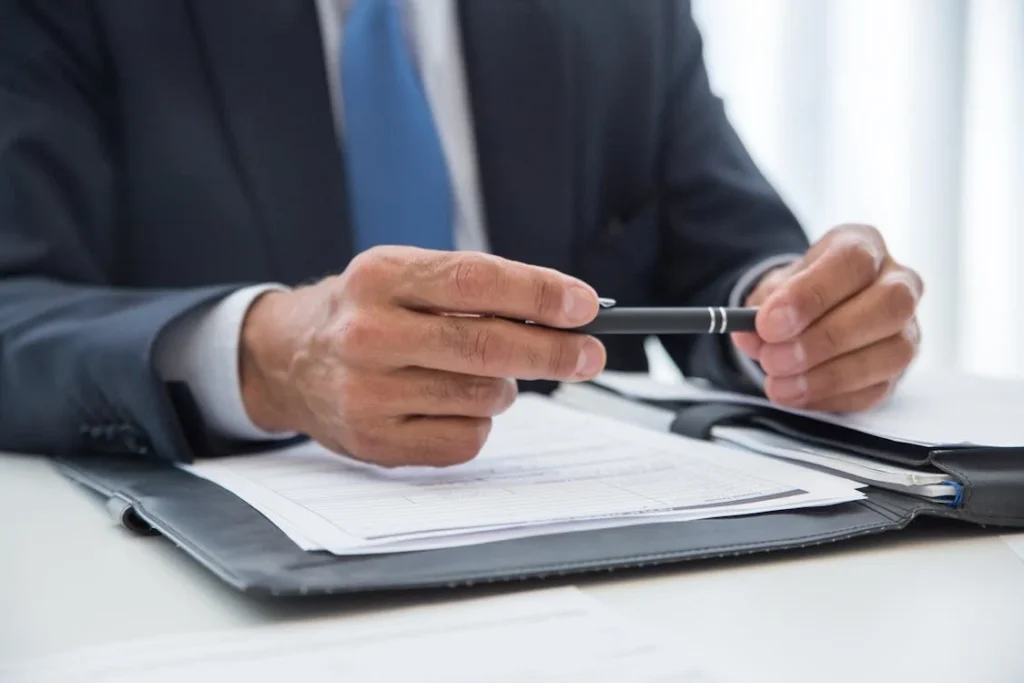
Understanding Why Disability Benefits Are Rejected
Before challenging a rejection, it is important to understand why claims are denied in the first place. Many people assume that a rejection means they are not eligible, but that is not always true.
Errors in documentation, incorrect medical assessments, and procedural lapses often lead to unfair denials. Identifying the reason behind the rejection is the first step in building a strong appeal.
Common Reasons for Rejection
One of the main reasons disability benefit claims are denied is incomplete or incorrect documentation. Many applicants do not provide all the necessary medical reports, disability certificates, or income proof, which leads to automatic rejection.
The government requires specific documents to verify the severity of the disability and assess eligibility for benefits. Even if a single paper is missing or not formatted correctly, the application can be turned down.
Another frequent issue is the improper medical assessment of disability. In India, disability certificates are issued by government hospitals, and in some cases, medical authorities may underestimate the severity of a person’s condition.
If the percentage of disability recorded in the certificate is lower than the required threshold for benefits, the claim may be rejected.
Technical errors in the application process also contribute to denials. Many government benefit schemes now require online applications, and mistakes in entering details or uploading documents can result in automatic rejections.
Sometimes, applicants are unaware of new rules or changes in the eligibility criteria, leading to misunderstandings about what is required.
Delays in government processing can also affect applications. Even when all documents are in order, some applications are rejected due to procedural errors by the authorities.
Files may be misplaced, applications may be processed incorrectly, or officials may not conduct proper follow-ups.
In some cases, discrimination and lack of awareness among government officials lead to unfair rejections.
Many people handling disability benefit applications may not fully understand the legal rights of persons with disabilities, causing them to deny applications without proper justification.
How to Identify the Reason for Rejection
If your disability benefit application has been rejected, the first step is to request a detailed explanation from the authority that denied your claim.
In most cases, rejection letters mention the reason, but if the explanation is unclear or missing, you have the right to demand further clarification.
It is important to carefully review your application and compare it with the eligibility criteria of the benefit you applied for. Check if any required documents were missing, if the medical assessment was done properly, and if all information provided was accurate.
If the rejection was due to procedural issues or mistakes in documentation, it can often be corrected by reapplying with the necessary corrections.
If the rejection was based on a medical assessment that you believe was incorrect, obtaining a second opinion from another government hospital or medical board can help strengthen your appeal.
In cases where the denial seems unfair or discriminatory, legal intervention may be necessary to challenge the decision.
Understanding the exact reason for rejection will help in preparing a strong case for appeal. Whether it is a simple documentation issue or a more serious dispute over medical assessment, knowing where the problem lies is key to successfully overturning the decision.
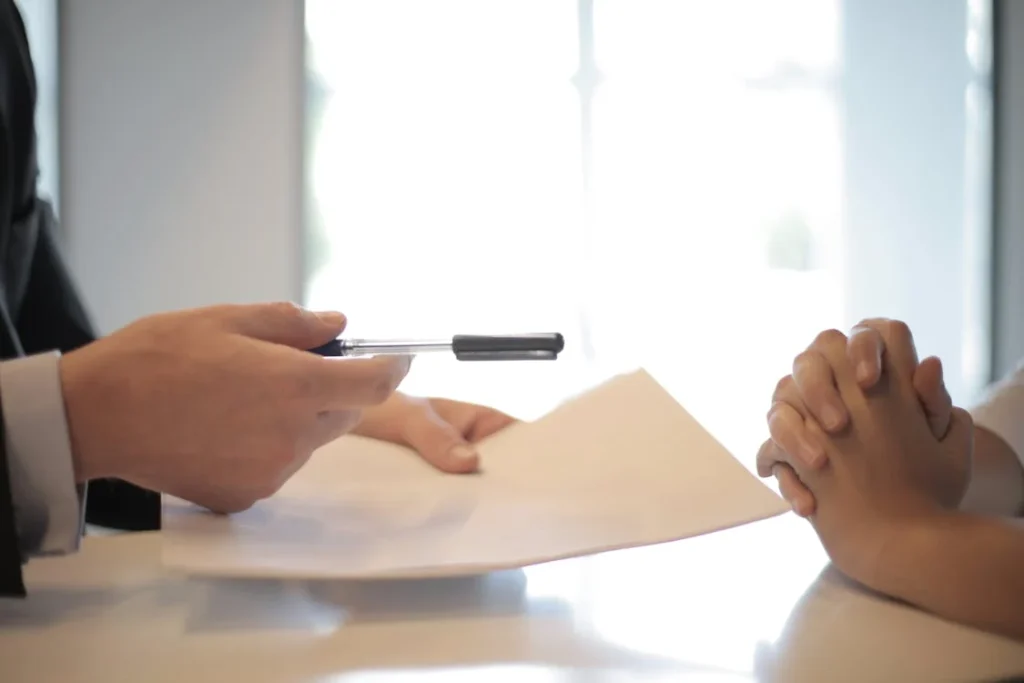
The Appeal Process: Challenging a Rejection Step by Step
If your application for disability benefits has been rejected, you have the legal right to challenge the decision. The appeal process may seem complicated, but with the right approach, you can increase your chances of success.
Patience and persistence are key, as government departments often take time to respond. However, taking systematic steps to file your appeal can help you navigate the process more effectively.
Collecting the Necessary Documents for Appeal
The first step in filing an appeal is gathering all relevant documents. Reviewing your original application and comparing it with the reason for rejection will help determine what additional information is needed.
If the rejection was due to missing documents, ensure that all required papers are collected and properly formatted before submitting the appeal.
Common documents include the disability certificate, medical records, proof of income, identification documents, and any additional reports from specialists that clarify the extent of your disability.
If your rejection was due to an incorrect medical assessment, obtaining a second opinion from another government hospital or a recognized medical board is essential.
A fresh evaluation that accurately represents the severity of your disability can serve as strong evidence in your appeal. If you believe your initial medical assessment was done improperly, requesting a re-examination from the issuing authority is also an option.
Some cases may require additional tests or supporting documents from a specialist.
Filing the Appeal with the Appropriate Authority
Once all necessary documents have been collected, the next step is submitting the appeal to the correct government body.
The process may vary depending on the specific disability benefit you applied for, but in most cases, appeals can be filed with the same authority that processed the original application.
If the rejection was issued by a district disability office, submitting the appeal to the same office with updated documents and a written explanation of your case is a good starting point.
If the appeal is not resolved at the local level, escalating the matter to a higher authority such as the State Commissioner for Persons with Disabilities or the Central Disability Commission may be necessary.
These bodies are responsible for ensuring that disability rights are upheld and can intervene in cases where government departments are not following legal guidelines.
Filing a complaint with these authorities requires providing details of the rejection, copies of all submitted documents, and an explanation of why the rejection was unfair.
Many government offices now allow online submissions for appeals. Checking the official website of the relevant department can provide guidance on how to submit an appeal digitally.
If online filing is not an option, physically visiting the office and submitting the appeal in person ensures that your case is officially recorded. Requesting a receipt or acknowledgment of your submission is important, as it serves as proof that your appeal has been filed.
Seeking Legal Help if Necessary
In cases where repeated appeals are ignored or unfairly denied, seeking legal assistance may be necessary. Disability rights organizations, legal aid groups, and non-profit advocacy groups often provide free or low-cost legal help for people facing difficulties in accessing their benefits.
Filing a case in the State Disability Tribunal or the High Court is an option if the authorities continue to deny rightful claims without proper justification.
Having a lawyer who specializes in disability rights can strengthen your case and ensure that legal procedures are followed correctly.
If financial constraints make hiring a private lawyer difficult, pro bono legal services are available through government and non-governmental organizations. Some disability rights activists and support groups also assist individuals in filing cases and navigating the legal system.
While challenging a rejection requires effort, persistence is key. Many people give up after one or two failed attempts, but government decisions can often be overturned through multiple appeals.
Staying informed about legal rights, documenting every interaction with authorities, and continuously following up on the status of your appeal increases the likelihood of a successful outcome.
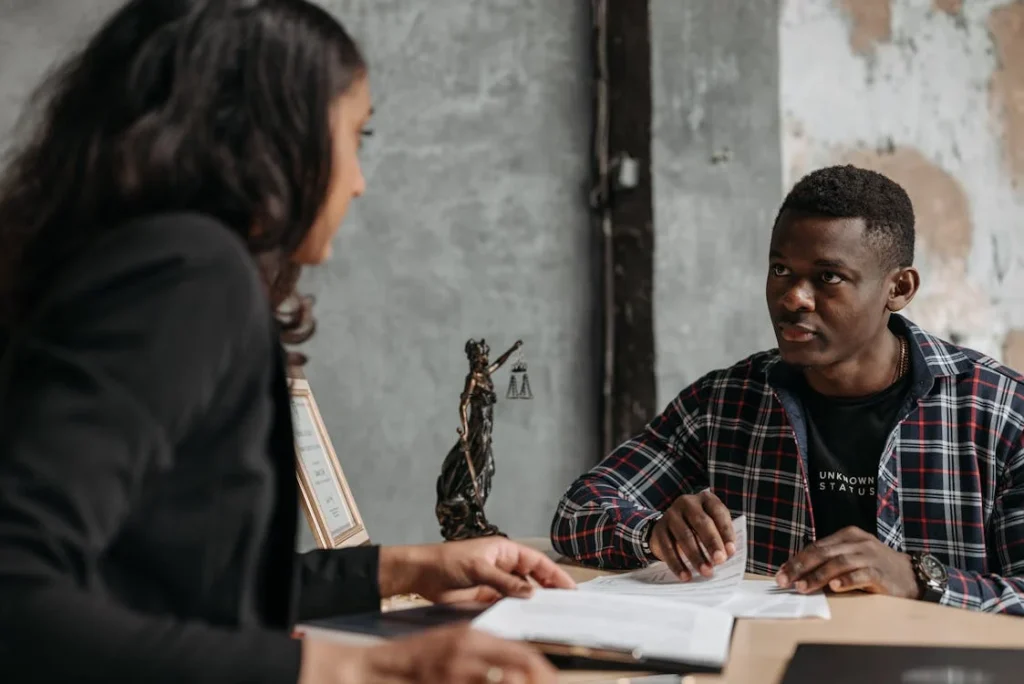
The Role of Advocacy and Support Networks in Challenging Disability Benefit Rejections
Filing an appeal for disability benefits can be a long and exhausting process, especially when government authorities fail to provide clear guidance or act with unnecessary delays.
In such cases, advocacy groups and support networks play a crucial role in helping individuals fight for their rightful benefits. These organizations offer guidance, legal assistance, and moral support, ensuring that applicants do not have to go through the process alone.
How Disability Rights Organizations Can Help
Across India, several organizations work to protect the rights of individuals with disabilities. These groups actively engage with government bodies to demand better implementation of disability laws and policies.
When a person faces a wrongful rejection of benefits, these organizations can step in to provide expert advice on how to proceed with an appeal.
Many advocacy groups conduct workshops and awareness programs that educate individuals about their rights. Lack of awareness is one of the main reasons why people with disabilities struggle to access government benefits.
Knowing the legal provisions under the Rights of Persons with Disabilities (RPwD) Act, 2016, can empower applicants to challenge unfair denials with confidence.
These organizations often maintain updated records of government schemes, eligibility criteria, and appeal procedures, helping individuals navigate the system more efficiently.
Legal advocacy is another area where disability rights organizations make a difference. Many of them work closely with lawyers and human rights activists to take up cases of wrongful benefit denials.
If an applicant is facing persistent rejection despite fulfilling all eligibility requirements, these organizations can help escalate the matter to higher authorities, including the courts if necessary. They also assist in drafting legal documents, preparing appeal letters, and representing individuals in legal proceedings.
Community Support and Peer Networks
Beyond legal and procedural assistance, emotional and moral support is equally important when challenging a rejection.
Many individuals with disabilities experience frustration and hopelessness when their benefit applications are denied, particularly if they rely on these benefits for financial stability, medical treatment, or daily living expenses. Connecting with others who have gone through similar struggles can provide encouragement and practical advice.
Peer networks and disability support groups exist across India, both online and offline. These groups offer a space where individuals can share their experiences, learn from one another, and find motivation to continue their fight for justice.
Social media platforms, WhatsApp groups, and community meetings serve as powerful tools for spreading awareness and mobilizing collective action.
When a case of wrongful rejection gains public attention, authorities are more likely to act. Disability rights movements have been successful in bringing attention to systemic issues within the government’s disability benefit programs.
Collective petitions, public campaigns, and media coverage have, in many instances, led to policy changes and improvements in benefit distribution.
Involving the Media to Strengthen Your Case
Public pressure is often one of the most effective ways to challenge bureaucratic inaction. News media outlets, digital publications, and social media platforms have the power to highlight individual cases of injustice and push authorities to respond.
Many disability rights cases have gained national attention through investigative journalism and media reports, leading to positive outcomes for the applicants involved.
Reaching out to journalists or human rights organizations that cover disability issues can be a strategic move when dealing with a wrongful rejection that has not been resolved through normal appeals.
Writing to newspapers, participating in interviews, or sharing personal stories on social media can bring attention to delays, unfair treatment, or policy loopholes that affect not just one individual but many others facing similar struggles.
The media also serves as a tool for exposing corruption or inefficiency within government departments handling disability benefits. If officials are delaying applications without valid reasons or denying benefits due to discriminatory attitudes, public exposure can force them to act responsibly.
Many times, after a case receives media coverage, authorities take swift action to correct errors and ensure that rightful benefits are granted.
The Power of Collective Action in Disability Advocacy
A single rejection of disability benefits may seem like an isolated case, but when multiple individuals face the same issue, it reveals a larger systemic problem.
Collective action through disability rights organizations, legal advocacy, and media involvement creates pressure for long-term changes in the way government schemes are implemented.
Filing appeals, raising awareness, and demanding fair treatment are steps that do not just benefit one individual but contribute to improving the system for many others in the future.
By participating in disability rights movements and community initiatives, people with disabilities and their supporters can help shape policies that ensure accessibility, fairness, and dignity for all.
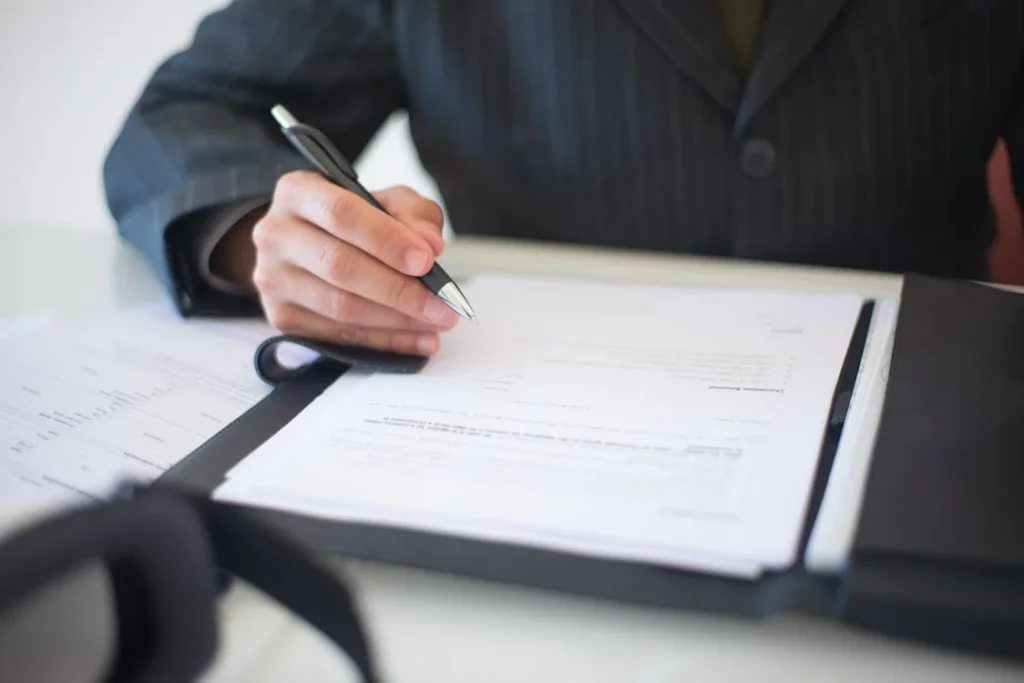
Strengthening the System: Long-Term Solutions to Prevent Unfair Rejections
While appealing a rejected disability benefit claim is important, the real solution lies in preventing such rejections in the first place. A well-functioning system should ensure that eligible individuals receive their benefits without unnecessary struggles.
Addressing the root causes of wrongful denials requires systemic reforms, improved government efficiency, and a shift in societal attitudes toward disability rights.
Improving Transparency and Accountability in the Application Process
One of the biggest challenges people face when applying for disability benefits is the lack of transparency in how applications are processed. Many rejections occur without a clear explanation, leaving applicants confused about what went wrong.
A structured system where every applicant receives a detailed reason for rejection, along with guidance on how to correct errors, would prevent unnecessary delays and confusion.
Government departments handling disability benefits must introduce better tracking systems that allow applicants to monitor the progress of their applications in real time.
Digital platforms should be upgraded to ensure that applicants receive automated updates on the status of their claims, any missing documents, and deadlines for appeal submissions.
If an application is rejected, the system should automatically generate a list of corrective actions that the applicant can take to improve their chances in the next attempt.
Ensuring that officials handling disability benefit applications are trained in disability rights and sensitivity is also essential. Many wrongful rejections happen because bureaucrats processing the applications do not fully understand the needs of people with disabilities.
Regular training programs can help government employees develop a fair and informed approach to evaluating disability benefit claims.
Reforming the Medical Assessment Process
Medical assessment is a critical part of determining eligibility for disability benefits, yet it is one of the most flawed areas of the system. Many people with significant disabilities are denied benefits simply because their disability percentage is underestimated during evaluation.
Others are required to go through repeated medical examinations, causing unnecessary delays and inconvenience.
A standardized and transparent system for medical assessments must be established. Government hospitals and medical boards must follow uniform criteria when determining disability percentages, ensuring that evaluations are consistent across different states and districts.
The medical assessment process should also be documented thoroughly, with applicants receiving a copy of their evaluation report to prevent disputes later.
Independent medical review panels should be introduced to handle cases where applicants disagree with their disability assessment. Instead of forcing individuals to go through lengthy appeal procedures, a secondary review board should be available to reassess cases quickly and make necessary corrections.
This would reduce the number of wrongful rejections and ensure that individuals with disabilities do not have to struggle for years to prove their condition.
Expanding Awareness and Accessibility of Disability Benefit Programs
Many people with disabilities miss out on their rightful benefits because they are simply unaware of what they are entitled to. Disability rights organizations and government bodies must work together to improve awareness campaigns that inform individuals about available schemes, eligibility criteria, and the steps to apply.
Clear, accessible information in multiple languages and formats—such as braille, sign language videos, and easy-to-read booklets—should be provided to ensure that no one is excluded from receiving this crucial information.
The application process itself must also become more accessible. Many government offices are not disability-friendly, making it difficult for individuals with mobility impairments to submit their documents or attend required medical evaluations.
Online portals should be designed with accessibility in mind, allowing individuals with visual or hearing impairments to navigate the system with ease. If digital platforms are not an option, community outreach centers should be established where trained staff can assist applicants with paperwork and submission.
Strengthening Legal Protections for Disability Rights
While India has strong disability rights laws, their implementation remains weak. The Rights of Persons with Disabilities (RPwD) Act, 2016, provides clear guidelines on the entitlement of benefits, but many cases of wrongful rejection continue to occur.
Stronger legal enforcement is necessary to hold government agencies accountable when they fail to provide benefits to eligible individuals.
One way to achieve this is by introducing a faster and more efficient grievance redressal system. Instead of forcing applicants to go through multiple levels of appeal, a dedicated disability rights tribunal should be established to handle benefit-related disputes.
This would allow cases to be resolved more quickly, preventing individuals from being left without support for long periods.
The government must also implement stricter penalties for officials who wrongfully reject applications without valid reasons. If an applicant is denied benefits despite meeting all eligibility criteria, the responsible authorities must be held accountable for their actions.
A system of checks and balances would ensure that disability benefits are processed fairly and in compliance with legal guidelines.
Moving Toward an Inclusive and Fair Disability Benefits System
For India to become a truly inclusive nation, disability benefits must be treated as a fundamental right rather than a privilege that requires excessive struggle to obtain. A system where individuals with disabilities are forced to fight for what they are legally entitled to is a system that needs urgent reform.
By improving transparency, reforming medical assessments, increasing awareness, and enforcing stronger legal protections, the government can build a process that is fair, efficient, and respectful of the dignity of people with disabilities.
Challenging a rejected disability benefit claim is just one step in the broader fight for disability rights. The goal should not only be to fix individual cases but to ensure that future applicants do not have to face the same obstacles.
A collective effort is needed to push for lasting change, making disability benefits accessible to all who need them without unnecessary delays, denials, or discrimination.
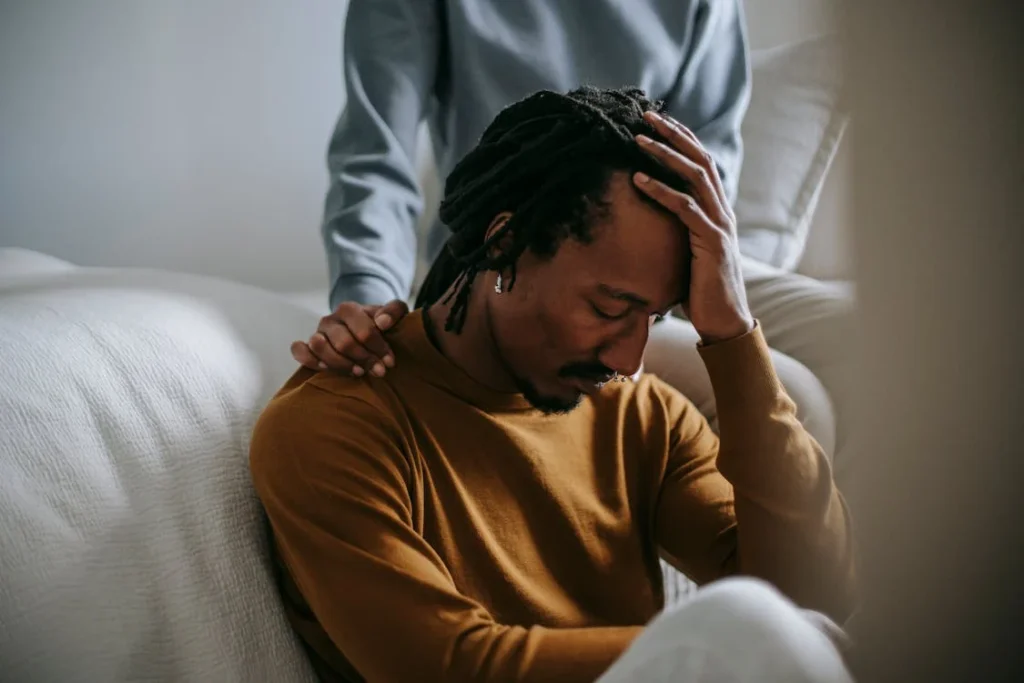
The Psychological and Financial Impact of Rejected Disability Benefits
Being denied disability benefits is not just a bureaucratic hurdle; it has a deep emotional and financial impact on individuals and their families. For many people with disabilities, these benefits are not just an additional support but a necessity for survival.
When an application is rejected, the consequences go far beyond paperwork—they affect mental well-being, daily living, medical care, and long-term financial stability.
The Emotional Toll of a Rejection
Receiving a rejection letter after going through a lengthy application process can be devastating. Many individuals with disabilities and their caregivers already face daily struggles related to mobility, accessibility, and discrimination.
A denial of benefits adds another layer of stress, making them feel unsupported by the system that is supposed to protect their rights.
For some, repeated rejections lead to feelings of helplessness and anxiety. Many applicants put great effort into collecting documents, undergoing medical assessments, and following official procedures, only to be denied due to minor technicalities.
The frustration of dealing with unresponsive government offices, repeated visits to authorities, and unclear reasons for rejection can lead to mental exhaustion.
Some individuals, especially those with mental health conditions or disabilities that are not visibly apparent, may feel invalidated by the rejection.
When a government authority dismisses their need for financial or medical assistance, it can create self-doubt and lead to worsening mental health. This is particularly harmful for those who lack a strong support system or have limited access to psychological counseling.
The Financial Strain on Individuals and Families
Disability benefits are designed to provide financial assistance for daily living expenses, medical treatments, assistive devices, and rehabilitation services.
A rejection means that individuals and their families must find alternative ways to cover these essential costs, which is often difficult.
Many people with disabilities struggle to find stable employment due to workplace discrimination, inaccessible offices, or physical limitations. In such cases, disability benefits serve as a financial lifeline.
When these benefits are denied, individuals are forced to depend entirely on family members, leading to additional stress on household finances.
Some families, particularly in lower-income groups, are pushed into financial hardship, where they must choose between medical care and basic necessities like food and housing.
Medical expenses add another burden. Regular doctor visits, physiotherapy sessions, assistive devices like wheelchairs or prosthetics, and long-term medication are expensive.
Without financial assistance, some individuals are forced to delay or entirely forgo essential medical treatments, leading to a deterioration in their health and well-being.
The Long-Term Impact of Benefit Denials
Denied disability benefits do not just create immediate financial problems; they have long-term consequences that can affect an individual’s future.
Many disability benefits come with additional social security protections, such as pensions, educational scholarships, and job reservations. If someone is unable to secure benefits, they may also lose access to these secondary opportunities.
For children with disabilities, rejection of financial aid can mean missing out on quality education. Many specialized schools or inclusive learning institutions require financial support, and without benefits, families struggle to afford school fees, assistive technology, or special educators.
This can lead to lower educational attainment and fewer employment opportunities in adulthood.
For adults, a denied disability benefit can mean a life of continued financial dependence on family members, reducing their ability to live independently. It also affects their long-term savings and retirement security, making them vulnerable to financial instability in later years.
Breaking the Cycle: Why Appeals Matter
Given these serious consequences, challenging a rejection is not just about securing financial aid—it is about ensuring long-term stability and dignity.
Every denied claim that is successfully appealed contributes to holding authorities accountable, setting a precedent for future applicants, and strengthening disability rights in India.
Advocacy groups, legal experts, and community support networks play an important role in helping individuals push back against unfair denials.
With proper guidance, many applicants successfully reverse rejections and obtain the benefits they rightfully deserve. However, the real goal should be a system that reduces unnecessary rejections altogether, ensuring that people with disabilities receive the support they need without repeated struggles.
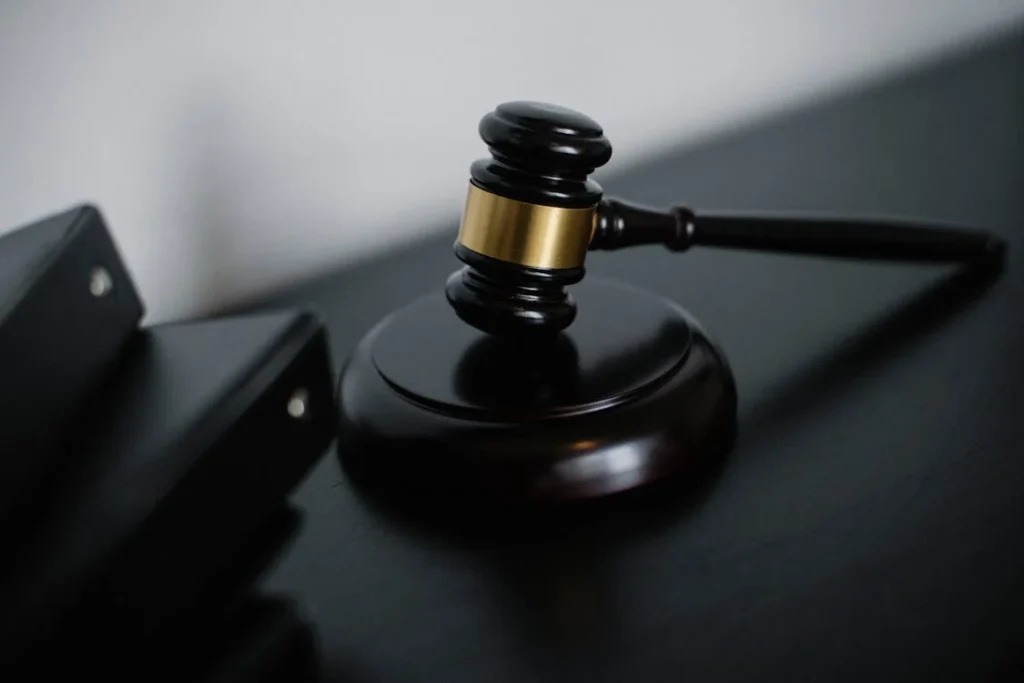
The Role of Government in Ensuring Fair and Accessible Disability Benefits
While individuals can appeal rejections and fight for their rights, the larger responsibility lies with the government to create a system that is fair, transparent, and accessible. A well-functioning disability benefits system should ensure that those who genuinely need support receive it without unnecessary hurdles.
Unfortunately, many aspects of the current process make it difficult for individuals with disabilities to access the benefits they are entitled to. Strengthening government policies, improving administrative efficiency, and ensuring greater accountability are essential steps toward a more inclusive and just system.
Reforming the Application and Verification Process
One of the biggest challenges faced by people with disabilities is the complicated and time-consuming application process. Many government schemes require individuals to submit multiple forms, visit different offices, and undergo lengthy medical evaluations before their applications are even considered.
For someone with a severe disability, traveling to government offices multiple times can be physically exhausting and financially draining.
The government must streamline the application process to make it more accessible. A centralized system where individuals can apply for different disability benefits through a single portal would reduce the burden on applicants.
The use of digital platforms can simplify documentation and reduce paperwork errors that often lead to rejection. However, digital accessibility must be a priority to ensure that people with visual, hearing, or mobility impairments can navigate online systems with ease.
Verification of disability should also be reformed to prevent wrongful denials. Many applicants are forced to go through multiple medical evaluations, sometimes with inconsistent results.
If one hospital certifies an individual as having a significant disability but another hospital assigns a lower percentage, the individual may lose eligibility for benefits.
Standardizing medical evaluation criteria across the country and ensuring that assessments are fair and consistent will reduce such discrepancies.
Ensuring Proper Training for Government Officials
Another major issue in the disability benefits system is the lack of awareness and training among government officials responsible for processing applications.
Many rejections occur because officials fail to understand disability laws, misinterpret eligibility criteria, or simply do not take applications seriously. Bureaucratic inefficiency and insensitivity can discourage applicants and prevent them from accessing much-needed support.
The government must ensure that all officials handling disability benefit applications receive proper training in disability rights, legal provisions, and best practices for assessing applications.
Sensitization programs should be mandatory for officers in social welfare departments, district disability offices, and financial aid agencies. When officials are well-informed and trained to approach applications with fairness and empathy, the number of wrongful rejections will decrease.
Strengthening Oversight and Accountability
A major flaw in the current system is the lack of accountability for wrongful rejections. In many cases, applications are denied without clear explanations, and government offices do not provide a proper grievance redressal mechanism for applicants.
Without oversight, officials can continue rejecting applications without facing any consequences, leaving individuals with disabilities struggling to fight the system.
The government must establish independent review boards that oversee disability benefit decisions and investigate complaints of wrongful rejections.
If an applicant is denied benefits without valid reasons, the case should automatically be reviewed by a higher authority. This would prevent individuals from being forced to go through lengthy and frustrating appeals.
In cases where rejections are proven to be unjustified, government officials responsible for denying applications should be held accountable. Whether through penalties, retraining, or administrative action, there must be consequences for repeated failures to uphold disability rights.
A transparent system where officials must justify rejections in detail and provide applicants with a clear path to appeal would improve fairness and reduce unnecessary denials.
Increasing Public Awareness About Disability Rights
A significant reason why many individuals do not challenge rejections is lack of awareness about their rights. Many people with disabilities, especially those in rural areas, are not fully informed about the benefits available to them or the legal protections that prevent discrimination in government services.
Without this knowledge, they may assume that a rejection is final and give up on their claims.
The government should invest in large-scale awareness campaigns to educate individuals with disabilities and their families about available benefits, application processes, and legal rights.
These campaigns should be conducted in multiple languages and formats, including braille, sign language videos, and accessible printed materials.
Social workers and disability rights organizations can play a key role in spreading awareness and assisting individuals in navigating the system.
Public engagement is also essential. When more people understand the challenges faced by individuals with disabilities, there is greater societal pressure on the government to improve policies.
Civil society groups, activists, and media organizations should continue to highlight cases of wrongful rejections and advocate for reforms. Increased visibility of disability rights issues can push policymakers to take meaningful action.
Moving Toward a Rights-Based Approach
The rejection of disability benefits is not just a bureaucratic problem; it is a violation of fundamental rights. Individuals with disabilities have the same right to financial security, healthcare, and dignity as any other citizen.
The government must move away from a charity-based approach, where disability benefits are seen as favors, and toward a rights-based approach, where benefits are recognized as legal entitlements.
When disability benefits are treated as rights, the focus shifts from whether an individual deserves assistance to how the government can ensure equal access to opportunities.
A system that prioritizes inclusion, fairness, and accountability will ultimately create a society where individuals with disabilities can lead independent and fulfilling lives.
Conclusion
Challenging the rejection of disability benefits in India is not just about securing financial support—it is about fighting for dignity, fairness, and equal rights. Many rejections happen due to bureaucratic inefficiency, lack of awareness, and flawed medical assessments. However, individuals have the right to appeal, demand transparency, and seek legal intervention when necessary.
A fair and accessible system requires government reforms, standardized medical evaluations, and proper training for officials handling applications. Greater public awareness and advocacy efforts can help ensure that people with disabilities are not denied the support they need. Every successful appeal sets a precedent and strengthens the movement for disability rights in India.
Beyond individual struggles, the goal should be systemic change—where disability benefits are not seen as charity but as a rightful entitlement. A society that prioritizes inclusion and accessibility ensures that no one is left behind. The path may be challenging, but with persistence, legal support, and collective advocacy, individuals with disabilities can secure the benefits they deserve and work toward a future of greater equality and independence.



